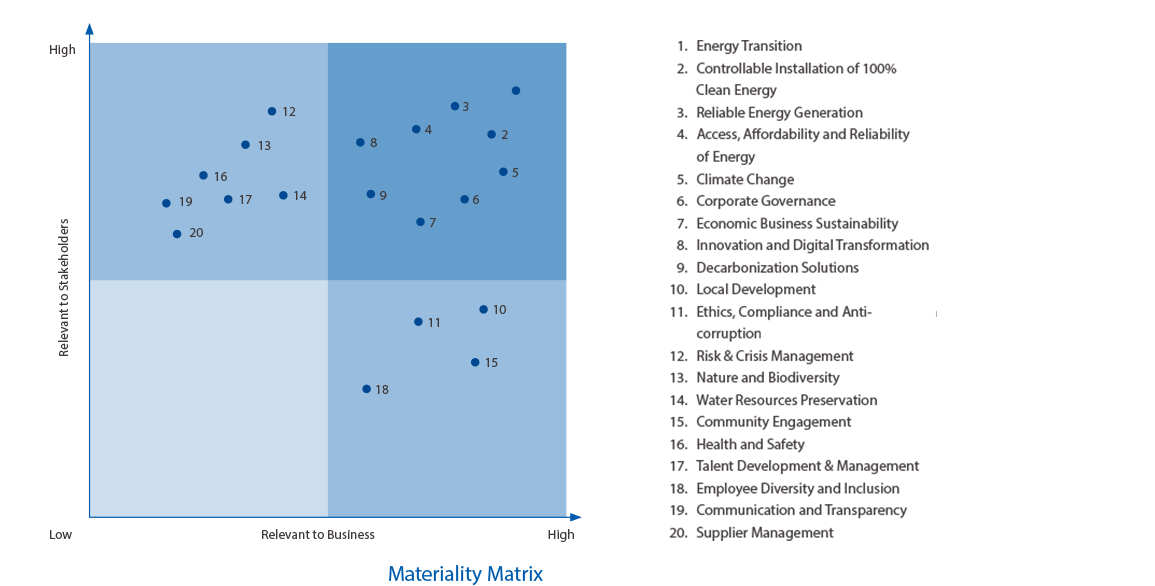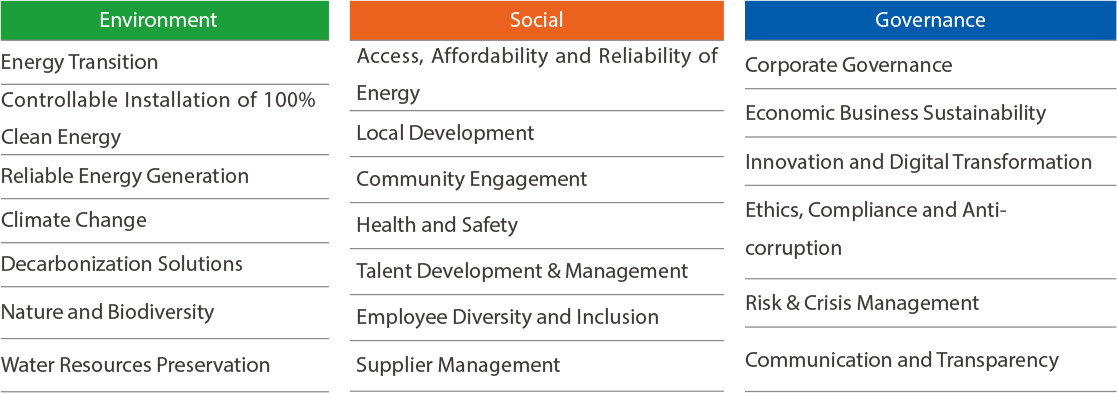
Clean energy must be deployed with respect for nature, social inclusion and in close cooperation with broader society. The impact of renewable power plans on biodiversity and local communities needs to be understood and minimized, and economic development and job creation are essential for renewable deployment to gain support.
CTGI's materiality analysis process has been developed using a multi-disciplinary methodology. CTGI's methodological approach to defining materiality considers the concept of dual materiality, as defined by the GRI Standards.
Stakeholder engagement
Regular engagement with internal and external stakeholders to understand what types of topices and issues concern them is key to determining our sustainability priorities. CTGI's key stakeholder groups include co-investors and partners, financing partners, shareholders, employees, suppliers, contractors, governments and regulators, as well as local communities. We assess identified topics for the significance of their environmental, social and economic impacts.
Material topics in our business
The most material ESG topics in our business are identified and prioritized based on the principle of double materiality, ensuring that both the impact on our global clean energy investment and the impact of this business are considered. The primary areas that may cause relevant economic, environmental and social impacts include geopolitical issues, regulatory policies, health, safety and security, compliance, supply chain, people and organisation(P&O), operations and maintenance(O&M), environmental and social(E&S), etc.
In 2022, the Company identified 20 material topics, which are relevant for society and for the business


Through the materiality process, CTGI identifies the most important topics for society and business. Material issues for CTGI are those likely to affect the creation of value for the Company, which are recognized as important to its different stakeholder groups. Based on the identified material topics, CTGI formulated its 2022-2024 Business Plan to make an integrated contribution to achieve its vision of being a more respectful company in delivering sustainable energy solutions for better life.
The United Nations Sustainable Development Goals (SDGs) - (7) Clean and affordable energy, (11) Sustainable cities and communities, (12) Responsible consumption and production, (13) Climate action and (17) Partnerships for the goals - are directly related to CTGI's material issues, of major importance for to business and society.